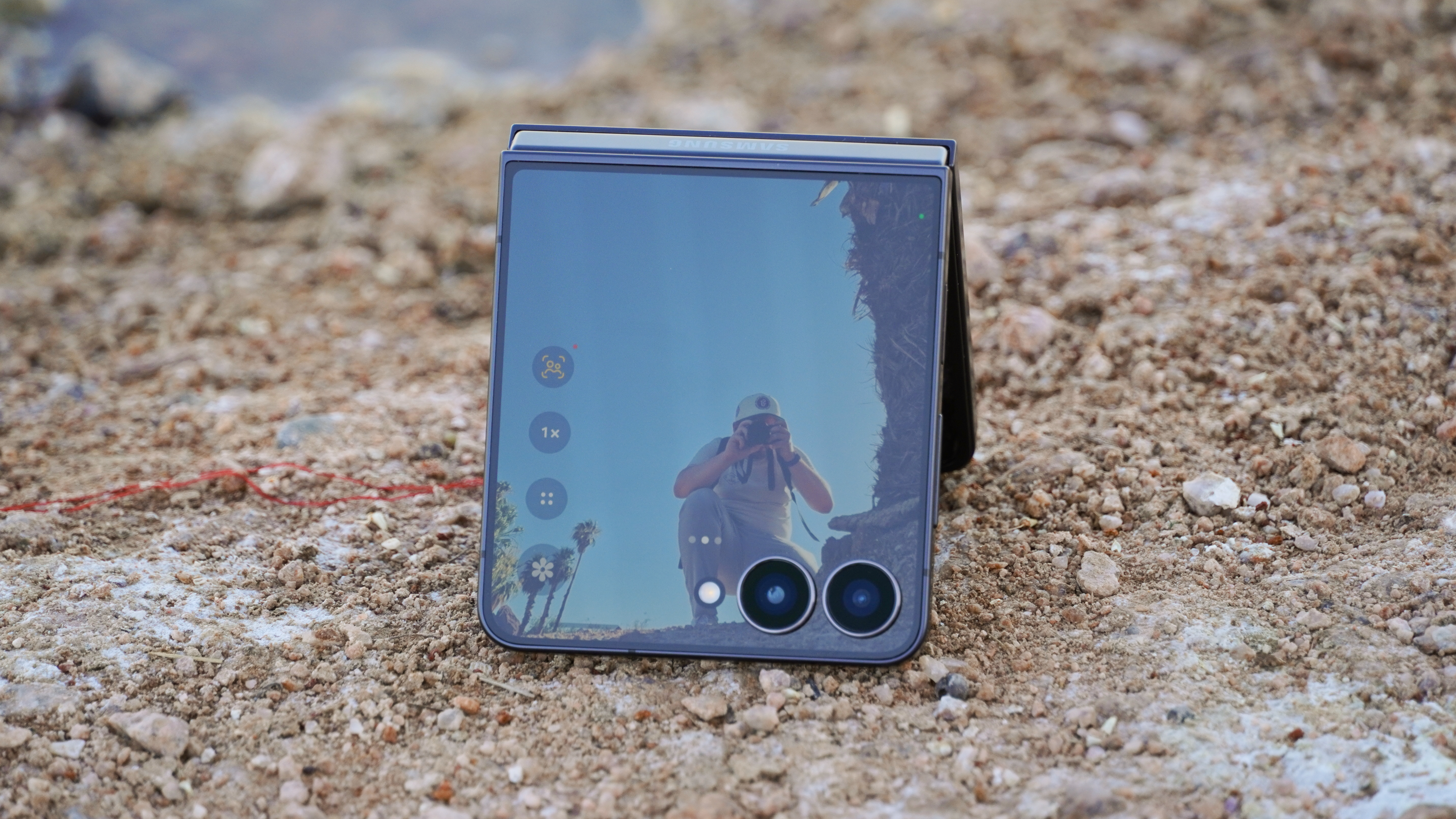Amazon Echo Show 10 (3rd Gen) vs. Echo Show (2nd Gen): 5 reasons to upgrade
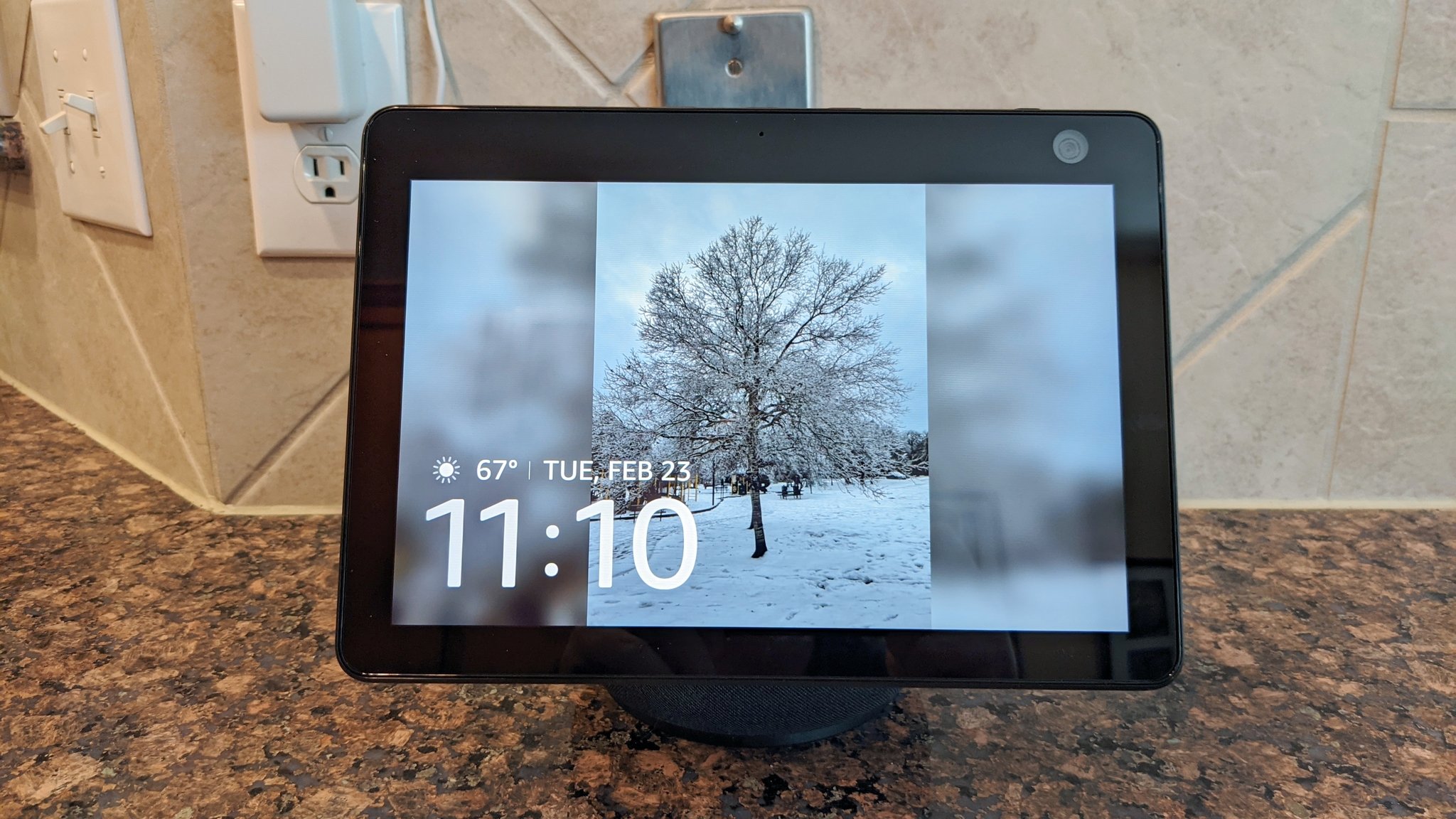
Get the latest news from Android Central, your trusted companion in the world of Android
You are now subscribed
Your newsletter sign-up was successful
Amazon Echo Show 10 (3rd Gen)
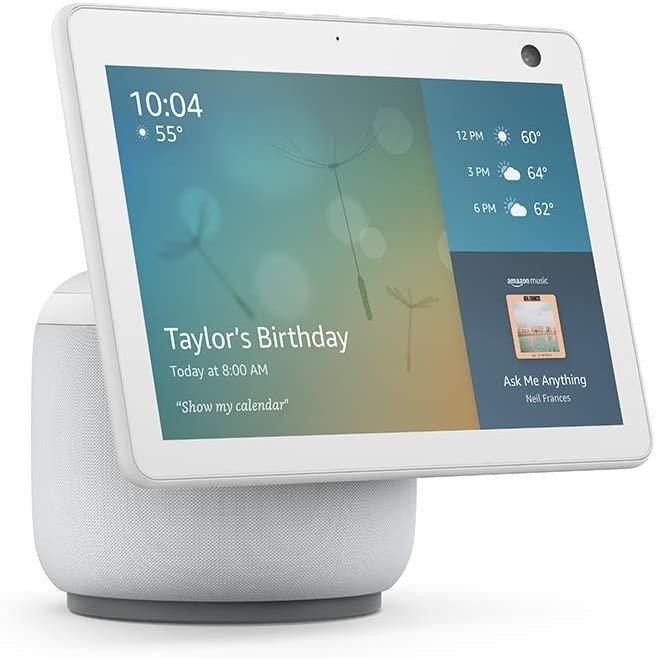
The Echo Show 10 (3rd Gen) is Amazon's newest Alexa-enabled device, and it's the more advanced and innovative Echo ever. It brings an improved camera, screen, speakers, a rotating display, and advanced privacy and security features. But it is also the priciest Echo ever.
Amazon Echo Show 10 (3rd Gen)
Turning heads
Amazon Echo Show (2nd Gen)
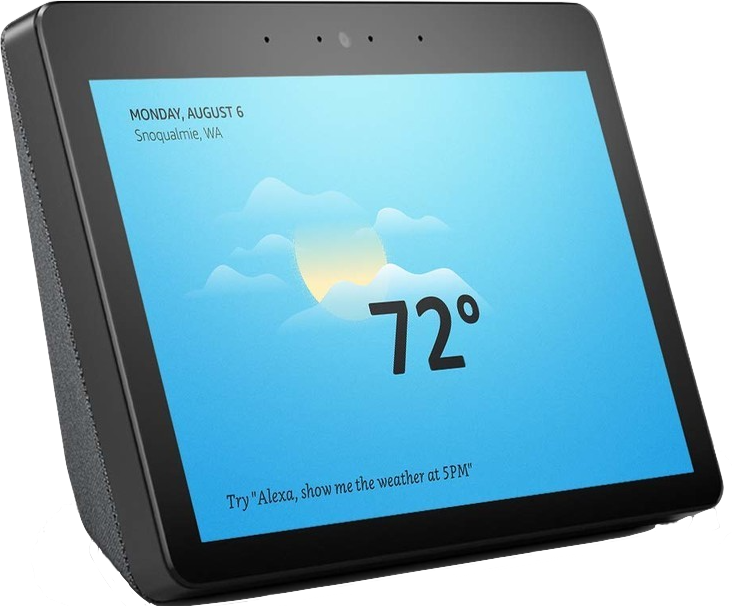
The Echo Show (2nd Gen) is still a great value, even two years after its release. It still has a better camera, screen, and speaker setup than the smaller Echo Shows, and it's now no longer the most expensive. However, it lacks some of the privacy controls that are now table stakes for smart screens.
Amazon Echo Show (2nd Gen)
Still capable
Looking at the Amazon Echo Show 10 (3rd Gen) vs. the Echo Show (2nd Gen) isn't just a helpful exercise for first-time purchasers. Rather, it's worth comparing the two devices if you have the older smart speaker to see if it's worth your time, effort, and money to upgrade. Over the past few years, you could make the case that the older Echo Show (2nd Gen) was still the best Amazon Echo Show speaker, even with the introduction of the newer and smaller Echo Show 5 and Echo Show 8. However, it seems clear to us that the newer Echo Show 10 (3rd Gen) is the high-end Echo to buy, and there are at least five reasons why that's the case.
Echo Show 10 (3rd Gen) vs. Echo Show (2nd Gen): spec comparison
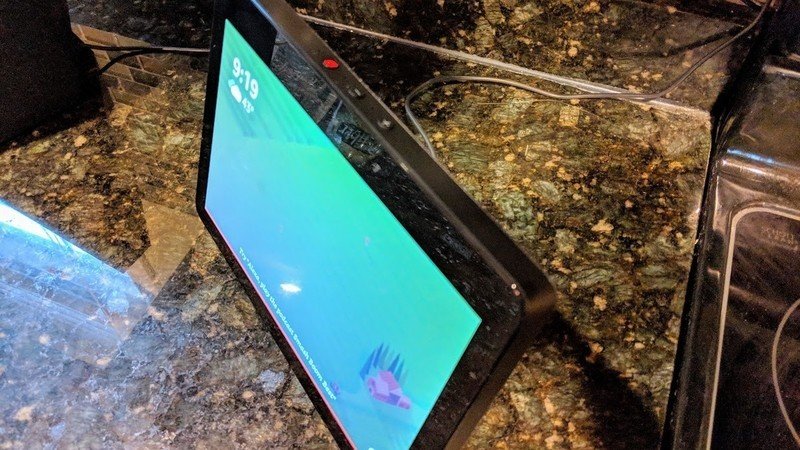
Before we jump into why we think you should consider upgrading from the 2nd to the 3rd Gen Echo Show, let us look first at how these two devices match up, spec-for-spec.
| Header Cell - Column 0 | Echo Show 10 (3rd Gen) | Echo Show (2nd Gen) |
|---|---|---|
| Display | 10.1 inches, 2180x800, touchscreen | 10.1 inches,1024x600, touchscreen |
| Dimensions | 9.9x9x6.7 inches | 9.7x6.9x4.2 |
| Processor | MediaTek 8183 plus second processor with Amazon AZ1 Neural Edge chip | Intel Atom x5-Z8350 |
| Camera | 13MP | 5MP |
| Connectivity | 802.11 a/b/g/n/ac Bluetooth A2DP | 802.11 a/b/g/n/ac luetooth A2DP |
| Speakers | 2x1" tweeters 1x3.0" woofer | 2x2" neodymium drivers passive bass radiator |
| Privacy features | wake word (Alexa) streaming indicator lights microphone/camera off button camera shutter delete voice recordings disable motion | wake word (Alexa) streaming indicator lights microphone/camera off button delete voice recordings |
| Motion | Brushless motor with +/- 175-degree rotation | NA |
| Smart home hub | Zigbee | Zigbee |
| Colors | Charcoal Glacier White | Charcoal Sandstone |
Some of the generational improvements are obvious and jump off the chart, like the improved camera and speaker quality. In contrast, others, like the processor and privacy controls, may be less obvious. It's time to dive into the improvements that will make the difference in your decision to upgrade from Gen 2 to Gen 3.
Echo Show 10 (3rd Gen) vs. Echo Show (2nd Gen): 5 reasons to upgrade
Better camera
The Echo Show (2nd Gen) camera isn't awful: It's actually on par or better than any other smart screen device except the Echo Show 10 (3rd Gen). The 5MP shooter on the 2nd Gen is much better than the meager 1MP camera on the Echo Shows 5 and 8 and roughly matches what is available on the best from Google with the Nest Hub Max's 6.5MP offering.
Get the latest news from Android Central, your trusted companion in the world of Android
However, none of these devices can match what is available on the Echo Show 10 (3rd Gen). This new device has a whopping 13MP camera, matching or beating some of the best selfie-shooters on many of the best Android phones. Amazon knows that more and more people are using their Echo Shows for video calling to stay in touch with friends and family. As such, it wanted to provide an even better experience for Alexa calls, Skype calls, and even Zoom calls (coming soon). That video calling experience is, of course, not just improved by a better camera, but by the highlight feature of the Echo Show 10 (3rd Gen) — the moving display.
Better viewing experience
If you haven't yet heard much about the Echo Show 10 (3rd Gen), you can at least note the drastically different design compared to the Echo Show (2nd Gen). The 3rd Gen's Display is cantilevered out in front of its speaker base, enabling it to be manually titled and automatically rotated. This is achieved thanks to a silent, brushless motor that effortlessly rotates the display up to 175 degrees.
The display on the Echo Show 10 (3rd Gen) can actually rotate so that it's always in your line of sight.
In conjunction with the improved camera that we mentioned above and the on-device processing that we'll get to below, this rotating display is capable of following your form around a space. Why would you possibly want this? There are many reasons, but two of the biggest use cases are for keeping the screen in view when you are moving around the room or keeping you and your loved ones in view when they are moving around during a video call.
Amazon spent a lot of time fine-tuning this moving display, but it also built tools for you to control the entire process. These include features that allow you to tune how wide you want the display to be able to turn and under what circumstances you want it to rotate or not. You can manually disable the rotation by locking the physical camera shutter, or you can simply ask Alexa to "stop following me."
Better speakers
Many, including Amazon, have called the Echo Studio the best Alexa speaker in terms of sound quality. Still, after testing the Echo Show 10 (3rd Gen) for a few weeks, we think the new smart screen can give that HD-quality device a run for its money.
The Echo Show (2nd Gen) is no slouch for speakers, thanks to its two rather large 2-inch neodymium drivers and a passive bass radiator. While these function well for watching videos or listening to music, the experience is hampered a bit by the fact that the speakers are back-firing.
Our review of the Echo Show 10 (3rd Gen) said it had the best speakers of any Echo device.
The Echo Show 10 (3rd Gen) may not seem on paper like it's that much of an improvement with its two 1-inch tweeters and one 3-inch woofer, but the upgrade here is as much about smarts as raw power. For one, the speakers face the user, and secondly, the audio is dynamic and spatially tuned to where the display is pointing. This means you have all of that great sound focused toward you, the viewer, wherever you may be in the space.
Better processor
This is a bit of an intangible advantage for the Echo Show 10 (3rd Gen) over the Echo Show (2nd Gen). Still, the newer device has improved silicone, enabling many of the advanced features, which are major selling points for it over the older device.
The Echo Show 10 (3rd Gen) features a MediaTek 8183 processor, plus a second processor with Amazon's proprietary AZ1 Neural Edge chip, which allows motion tracking, spatial audio, and on-device command processing that make this such a revolutionary device (pun intended). Processing commands locally also means that the Echo Show 10 (3rd Gen) isn't sending as much information to Amazon's cloud servers, which is better for your data protection and privacy. And speaking of privacy...
Better privacy and security
After the initial excitement of seeing a screen that rotates to follow you around the room wears off, many people might actually begin to feel a little creeped out by this head-turning new technology. Amazon has anticipated these privacy concerns and implemented several features and controls that put the user firmly in charge of their privacy and data.
For starters, and as we mentioned above, Echo Show 10 (3rd Gen) users can disable the camera and motion tracking in one simple step. All they have to do is switch on the physical camera shutter, and they are provided with not one, not two, but three visual cues that the device can no longer see them. For one, the shutter blocks out the camera, which you can see thanks to the white covering, and two, there is an orange indicator light at the bottom of the screen and a camera off icon at the top right of the screen. The Echo Show (2nd Gen) has a mute button that also electronically disables the camera, but it doesn't offer the peace of mind that a visible cover does.
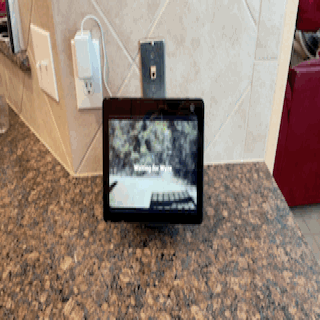
Echo Show 10 (3rd Gen) owners can also issue voice commands to turn the motion tracking on or off, and they can ask Alexa to delete voice their voice recordings from that moment, that day, or their entire voice recording history. Users can also rest assured that Amazon is not employing any sort of facial recognition. The tracking performed by the camera breaks down the video (locally, on-device) into abstract blurbs that are not individually identifiable. It's actually really cool and involved a lot of artificial intelligence, machine learning, and something called computer vision service (CVS).
Finally, Echo Show 10 (3rd Gen) users can remotely access the camera on their device to monitor their space when not at home. Users can pan the camera left or right to scan the room, and they can even digitally zoom in a bit. During this time, the Echo Show 10 (3rd Gen) displays a disclaimer on the screen letting anyone in the room know that an authorized user is accessing the camera, so there's no unwanted snooping. Amazon is also introducing a feature bundled with its Alexa Guard Plus subscription that allows customers to turn on a "sentry mode" to let the device act as an autonomous security camera when they are not at home.
Echo Show 10 (3rd Gen) vs. Echo Show (2nd Gen): It's time to upgrade
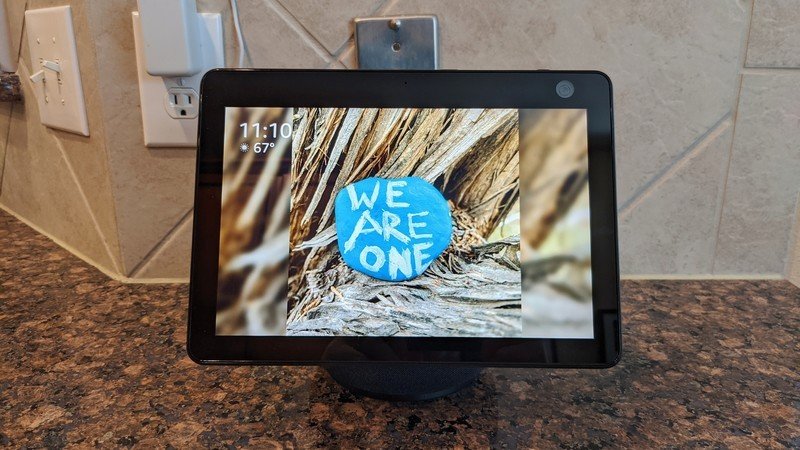
As we said previously, there's not a lot that the Echo Show (2nd Gen) doesn't do well. However, literally everything the Echo Show (2nd Gen) does, the Echo Show 10 (3rd Gen) does better. It has a better display, better speakers, a better camera, and better-advanced safety and security features. Plus, even though it's more expensive, it's only $20 more than a two-plus-year-old device. If you're upgrading from an older Echo Show, the Echo Show 10 (3rd Gen) should be at the top of your wish list.

Jeramy was the Editor-in-Chief of Android Central. He is proud to help *Keep Austin Weird* and loves hiking in the hill country of central Texas with a breakfast taco in each hand.
